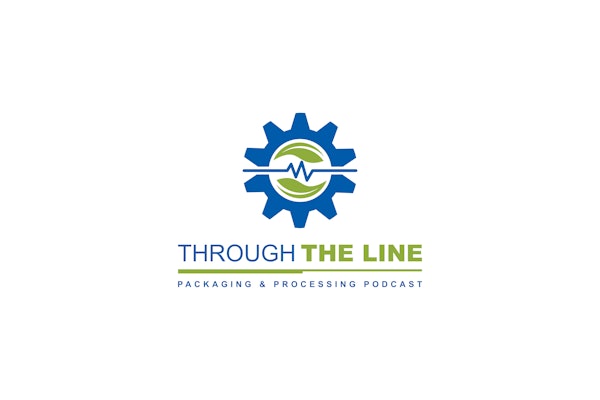If the client needs help figuring out what the law requires, we help with that. If it’s not completely clear and predictable, well then, there’s more work to do. The recent history of the regulation of cannabis and CBD products has been one of those “more work to do” scenarios, filled with uncertainty and unpredictability for packagers, and lots of frustration. Perhaps most frustrating of all is that most of us expected there to be more certainty by now.
The crux of the problem is the conflict between the federal laws that outlaw cannabis and CBD in many forms and in foods and dietary supplements, and the many states who have legalized many forms of cannabis and CBD-containing products.
What’s the holdup? After all, the tough part appears to be behind us: So many of the historical taboos about cannabis have already fallen away, with 18 individual states legalizing it for recreational use, another 13 decriminalizing it, and 36 legalizing it for medical purposes. CBD-containing products, too, are proliferating in most states, powered by state laws permitting sales and a range of perceived health benefits
But until the feds finish the thought by removing the federal prohibitions, the policy transformation won’t be complete. Eliminate those federal requirements and packaging companies, processors, and contract manufacturers would see a world of new opportunities.
Thus, the federal prohibitions of cannabis and CBD in foods (including supplements), stand as an anachronistic symbol of a bygone era. Cannabis is a federal controlled substance along with heroin and LSD, and among the awkward results of that are that businesses are not permitted to use federal banking systems, and have to restrict themselves to sales and marketing within one state.
Various bills proposing to change federal law are already before Congress, and it can be treacherous to attempt to predict either their fate or final form. It’s a popular topic, though. It’s even possible to find reports on bills that aren’t proposed yet. However, several bills have been proposed and have made it through varying levels of consideration by legislative committees.
For example, the bill proposed by South Carolina Republican Nancy Mace would take cannabis off the list of “controlled substances” and let states make their own rules about cannabis, including keeping it outlawed if they want, but would allow interstate commerce in cannabis and allow cannabis businesses to use banks, and even get loans and issue stock. She describes it as regulating cannabis like alcohol. The bill even provides for some excise taxes (Look, Ma! A Republican suggested a tax!)
CBD-containing products would be regulated differently under other proposed federal laws, such as one that would specifically make CBD from hemp lawful as an ingredient in foods and dietary supplements (which the law now says it isn’t), but would allow FDA to impose labeling and packaging requirements on such products.
I checked back with consultant Dr. Sanford Wolgel, (former Chief Science Officer for Cannabistry Labs), whom I quoted last March on this topic. He spent the first few minutes teasing me for having predicted that something would get done during 2021. After that hilarious interlude, he offered a useful summary of the overall scene, which he phrased in terms of the varying interests of four groups of stakeholders.
First, he says, are consumers, many of whom want their cannabis and CBD and really don’t care much about what any regulators say.
Second is industry—including growers, manufacturers, packagers, and their suppliers—champing at the bit to expand their activities or dive into the business, some of whom are legitimate companies marketing consistently made products and adhering to scientific best practices, while others are, well, less so.
Third are the federal government players, both the Congress which has the power to change the law and the FDA whose job it is to implement the law (and whose ability to accommodate consumers and industry is ultimately limited by the laws Congress hands them), all while juggling assorted political pressures from everywhere.
Finally, there are the states, many of which have already demonstrated their willingness to get out ahead of the feds. The states might want to see the feds change some things and clarify some things, but in the meantime aren’t waiting, and are happy to keep allowing sales and marketing of cannabis and/or CBD in their states.
Usually, businesses don’t want the federal government to impose any requirements on them, but other times the certainty and consistency that comes from having a single national standard are helpful to businesses. Recognition of that advantage helps explain the level of bipartisan support for proposals in Congress.
And yet, it ain’t happened yet. And not to be a buzz-kill, but once it does, it’s not clear that smooth sailing for cannabis and CBD will result.
For example, FDA has been saying for some years that it’s not convinced that CBD is safe. What happens if Congress orders FDA to set standards for the safe use of CBD in foods and supplements, and FDA does so, only to conclude that levels of CBD that consumers commonly consume now are unsafe and should be unlawful?
If, like a lot of folks, you are inclined to predict that Congress won’t pass anything because they seem too often to be unable to get anything done, that’s not irrational. But happy surprises do occur—if you have a minute, let me tell you about the Chicago Bulls’ season so far.
Eric Greenberg can be reached at [email protected]. Or visit his firm’s Web site at www.ericfgreenbergpc.com.
INFORMATIONAL ONLY, NOT LEGAL ADVICE.

























